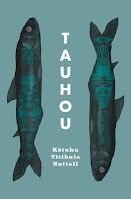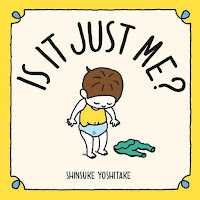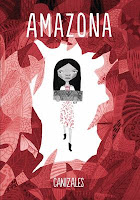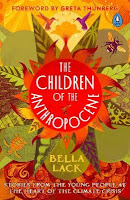 Kiwi Christmas Books. If you can't imagine the festive season without a pile of good books, remember that there are children whose whānau are experiencing hardship and who have little to look forward to at Christmas. If you would like to give books to needy children in our community, either 1. Make a donation and we will choose books on your behalf; or 2. Choose books from our website yourself and just put "Kiwi Christmas Books" in the 'notes' field as you check out. Thank you for making a difference! >>Find out more about the Kiwi Christmas Books scheme.
Kiwi Christmas Books. If you can't imagine the festive season without a pile of good books, remember that there are children whose whānau are experiencing hardship and who have little to look forward to at Christmas. If you would like to give books to needy children in our community, either 1. Make a donation and we will choose books on your behalf; or 2. Choose books from our website yourself and just put "Kiwi Christmas Books" in the 'notes' field as you check out. Thank you for making a difference! >>Find out more about the Kiwi Christmas Books scheme.
| >> Read all Stella's reviews. | |
Tamara Shopsin has written a personal and lively memoir about growing up in New York in the 1970s, specifically, about growing up in Greenwich Village in the shadow, or more precisely in the arms, of The Store. The Store was famous in spite of itself, and still is an iconic New York institution. What started solely as a grocer became a restaurant of repute in the 1970s, a place with its very own style and culture and a centre of the conversation, happenings and relationships of a neighbourhood. Tamara’s father Kenny Shopsin was a New York personality running The Store with his partner Eve. The five children grew up on the street and in the restaurant - on the sawdust floor, beside the freezer that gave electric shocks, in the arms of regulars, and under the feet of customers. Each had their shop chores and all chipped in as needed. Tamara Shopsin’s memoir is a homage to New York City, a New York that she sees as under threat from developers, increased housing prices and homogenised culture. It’s a homage to her eccentric father who had his own style, constantly changing the vast menu (especially if a dish became too popular) and making crazy customer rules - rules that made his place even more attractive to some and completely repellent to others: no phones, parties of no more than four people (don’t even try to sneak in with a three and a two and then pretend it is a coincidence), and no copying what someone else has just ordered. You could be a friend for life or blacklisted by putting a foot wrong with Kenny. The book is a homage to friends, family, and the importance of neighbourhood. Shopsin recalls the famous and the ordinary, drawing out the stories of those closest to her, particularly her father’s friend Willy, who in his unusual way sees them all through some sticky situations. There is a fascinating account of the development of the crossword puzzle and Margaret Petherbridge’s role in this at the New York Times. Kenny sometimes submitted puzzles and kept up a correspondence with Margaret over numerous years. There are numerous asides and insights making reading this memoir a delight. Arbitrary Stupid Goal is arranged as small pieces loosely connected, pieces that scoot from present day to a Tamara of age five and back, into times before her birth and retold stories. Over the course of the book she shapes a conversation that gives you an insight to her and her siblings’ childhood, the bohemian nature of The Village, the quirks of her father's cooking practices and temperament, the significance of the seemingly ordinary, and the importance of place. The Store was a meeting place that attracted celebrities, eccentrics and local, a place that accepted people for who they were but brokered no quarter for fakes or demanding clientele. In fact, Kenny feared success (and having to work too hard) and shrugged off reviewers and interviews, even going as far as to tell guidebook publishers that the restaurant had closed or that The Store was now a shoe shop. Tamara Shopsin’s writing style is quirky and idiosyncratic. She writes from the point of view a middle child, a keen observer with an agile mind, the point of view of a woman still very much connected to the place that made such an impact on her. Tamara Shopsin cooks weekends at The Store and is passionate about its legacy and the New York City she believes in. Touchingly personal and endlessly fascinating, this is a memoir which moves from hilarious to tragic and back again in a half a breath. |
Our Book of the Week, Diego Garcia by Natasha Soobramanien and Luke Williams, has just been awarded the 2022 Goldsmiths Prize ("for fiction at its most novel"). This unique multivocal multilocational collaborative novel tells of two friends, blocked writers struggling with the relationship between fiction and reality, who make friends with a man whose mother was forced to leave one of the Chagos Islands in the Indian Ocean under the unlawful administration of the British government. Will fiction provide the friends with a way to tell a story that is not their own without appropriating or colonising that story?
>>Protest fiction for a new generation.
>>The urge to write in solidarity.
>>Art, life, and fiction.
>>Fifty years of state fiction.
>>The Last Colony by Philippe Sands tells of the injustices committed on Chagossians.
>>What can be done about half a century of unlawful administration?
>>Your copy.
>>Read the other books on the Goldsmiths short list.

| >> Read all Thomas's reviews. | |
You’re soaking in it, he said when I asked him how he was getting on with the review of Renata Adler’s novel Speedboat, the review he was supposedly writing for the newsletter that his bookshop issued each week. You’re soaking in it, he said, but he did not elaborate further, and it was unclear to me what he meant. He was referring, perhaps, to the decades-old advertisement for a dishwashing liquid that softens your hands while you do the dishes, if we are to believe the advertisement, a liquid that undoes the effects of work upon the worker, a liquid that leaves a person who commits a certain act seeming less like a person who would commit that act than they seemed before they committed that act, in this case washing the dishes but presumably the principle could apply to anything, providing that the appropriate liquid could be found. You’re soaking in it, he repeated, and, yes, I thought that perhaps he was right, we are immersed always in something that undoes the effects upon ourselves of our own intentions, something that Adler alludes to when she writes, “For a while I thought that I had no real interests, only ambitions and ties to certain people, of a certain intensity. Now the ambitions have drifted after the interests, I have lost my sense of the whole. I wait for events to take a form.” But there is an uneasy relationship between the narrating mind and the world in which it soaks, in which it is softened as it does its work, he might think. “Situations simply do not yield to the most likely structures of the mind,” wrote Adler. The world in which we soak is comprised of random events, or at least of events sufficiently complex as to appear random or to be treated without fear of correction as random, he might think, a world of discontinuity, of agglomeration and dissolution, of fragmentations, collisions and tessellations, he might think, a world in which the one who is soaking in it instinctively, or, perhaps, instinctually, it’s hard to tell which, searches for meaning even while acknowledging its impossibility, for this, he probably is thinking, is the nature of thought, or the nature of language, if that is not the same thing. We cannot help but narrate, narrate and describe, observe and relate. There is no meaning, I suppose he is thinking as he contemplates, or as I suppose he contemplates, the review he could be writing of the book that he has read, or claims to have read, may well have read, no meaning other than the pattern we impose by telling. Stories both create and consume their subjects, he thinks, I think, or he might as well think. Writing and reading, the so-called literary acts, are concerned with form and not with content, or, he might say, more precisely, concerned primarily with form and only incidentally with content, so to call them, he might think, the literary acts are patterning acts and it is only the patterning that has meaning. Renata Adler writes beautiful sentences, he thinks, and this you can tell by the small pleasant noises he makes while reading them, she turns her sentences upon the sharpest commas. The comma is the way in which life, so to call it, impresses itself upon us. Each assertion Adler makes is mediated by the realisation that it could be otherwise, either in point of fact, or in change of context, perspective, or scope. There is no progress without hesitation: no progress. Each comma is a rotation. There is humour in precision: “Doctor Schmidt-Nessel, sitting, immense, in his black bikini, on a cinder-block in the steam-filled cubicle, did not deign immediately to answer.” Speedboat is filled with such perfect sentences arrayed on commas. Sentences in paragraphs, often brief, filled with the jumble, so to call it, of the life of its ostensible narrator, Jen Fain, but, perhaps, of the life of Renata Adler, if such a distinction can sensibly be made, the narrator does not observe herself but those around her, she is a space in what she observes, she is an outline in the snippets that attach themselves to her. The real subject of the book, though, is language, others’ language and her own. The book might be a novel, it is almost a novel, it is a novel if you don’t expect a novel to do what a novel is generally expected to do, it is information is caught in a sieve, the nearest to a novel that life can resemble, or vice-versa, if this is of any importance. All novels, even the most fantastic, are comprised predominantly of facts, he is probably thinking, if he is in fact thinking, and it is only the arrangement of facts that comprises fiction. Adler’s narrator is entirely extrospective. She reports. She dissolves the distinctions between novelist, gossip columnist, journalist, and spy, the distinctions that were always only conceptual distinctions in any case and not distinctions of practice. Fain wonders what several of her friends actually do who have become spies. “I guess what these spies — if they are spies, and I’m sure they are — are paid to do is to observe trends.” Fain as a journalist cannot conduct an interview, she cannot impose herself to seek an answer, she has no programme, she can only observe. At one point she “receives communications almost every day from an institution called the Centre for Short-Lived Phenomena”. Her news, and it is news, is her own life, but not herself within it. She knows the risks: “The point changes and goes out. You cannot be forever watching for the point, or you will miss the simplest thing: being a major character in your own life.” Is meaning a hostage to circumstance, or is it the other way round? When the narrator starts to think about the world in terms of hostages it is because she has what she sees as a hostage inside her, a pregnancy she has not told her partner about, all things are hostages to other things, this is perhaps a sort of meaning. Hostages are produced by grammar; grammar cannot do other than make hostages. There he sits, hostage, I suppose, to his intention to write a review, or at least to the set of circumstances, odd though they may be, that contrived to expect of him this review, the review he will not write, disinclined as he is to write, though he will say, I am sure, if you ask him, that he enjoyed the book Speedboat very much. He makes no presumption upon you. As Jen Fain or Adler writes, “You are very busy. I am very busy. We at this rest home, this switchboard, this courthouse, this race track, this theatre, this lighthouse, this studio, are all extremely busy. So there is pressure now, on every sentence, not just to say what it has to say but to justify its claim on our time.” |
NEW RELEASES
>>See some of the many, many pages.
>>The best and most interesting period.
>>A faraway fanatic.
>>Somewhere in the room.
>>Our (nonrepresentative) playlist of sorts: Pin Group; The Builders; The Clean; Tall Dwarfs; Sneaky Feelings; Look Blue Go Purple; 25Cents; Victor Dimisich Band; Gordons; DoubleHappys; The Bats; Scorched Earth Policy; All Fall Down; The Fall; Marie and the Atom; The Terminals; &c, &c.
"The world's best short story writer." —Telegraph
>>Startling astonishments.


One woman’s journey to her moko kauae as an expression of her Kāi Tahu identity. Ariana Tikao grew up in suburban Christchurch in the 1970s and ’80s surrounded by te ao Pākehā. This book tells the story of Ariana exploring her whakapapa, her whānau history and her language. This is one woman’s story, but it is interwoven with the revival of language, tikanga and identity among Kāi Tahu whānau over the last thirty years. Ariana’s journey culminates in her decision to take on Mokorua – her moko kauae – from tā moko artist Christine Harvey. After an emotionally charged ceremony that brought together whānau, young and old, for songs and tautoko, hugs and tears, Ariana writes: "Our whānau had reached another milestone in the decolonisation process – or, rather, in our journey of reindigenising ourselves, becoming who we always were."
>>Look inside.

The present can loom very large in a child's mind: all the crises and challenges of the modern world can feel overwhelming and at times dispiriting. This book is a big history of the world, from the beginnings of the universe to now, which places the reader at its centre. It encourages them to think about how and why they experience the world as they do and offers a helpful perspective by placing their thoughts and feelings in the context of our history and evolution.
VOLUME FOCUS : New York
A selection of books from our shelves.

| >> Read all Stella's reviews. | |
|
| >> Read all Thomas's reviews. | ||
|
Our Book of the Week is The Seven Moons of Maali Almeida by Shehan Karunatilaka, the winner of the 2022 Booker Prize. The judges said, "The Seven Moons of Maali Almeida takes readers on a journey at once horrific and humorous — beyond life and beyond death, to the world’s dark heart. There, astonishingly and encouragingly, we find tenderness, laughter, loyalty and love." The novel addresses the trauma of the civil war in Sri Lanka, but is funny, audacious, and full of verve and compassion. Now back in stock!
>>Read an extract.
>>Jokes rob the tyrants of power.
>>A coping mechanism.
NEW RELEASES
Click through to our website to get your copies!
Te Wehenga: The separation of Ranginui and Papatūānuku by Mat Tait $37
Before the world as we know it could come into being, space had to be made between the Sky and the Earth; their children had somehow to force them apart. Tait's stunning dark illustrations and seamlessly bilingual, typographically exciting text bring this foundation myth alive for a new generation.
>>Just look at these illustrations!
>>Visit Mat Tait's website.
Acting Class by Nick Drnaso $45
"Every single person has something unique to them which is impossible to re-create, without exception." —John Smith, acting coach
Nick Drnaso's graphic novel Acting Class creates a tapestry of disconnect, distrust, and manipulation. Ten strangers are brought together under the tutelage of John Smith, a mysterious and morally questionable leader. The group of social misfits and restless searchers have one thing in common: they are out of step with their surroundings and desperate for change. A husband and wife, four years into their marriage and simmering in boredom. A single mother, her young son showing disturbing signs of mental instability. A peculiar woman with few if any friends and only her menial job keeping her grounded. A figure model, comfortable in his body and ready for a creative challenge. A worried grandmother and her adult granddaughter; a hulking laborer and gym nut; a physical therapist; an ex-con. With thrumming unease, the class sinks deeper into their lessons as the process demands increasing devotion. When the line between real life and imagination begins to blur, the group's deepest fears and desires are laid bare. Exploring the tension between who we are and how we present, Drnaso cracks open his characters' masks and takes us through an unsettling journey. From the author of Sabrina.
>>Look inside!
Demon Copperhead is born to a teenaged single mother in a single-wide trailer, with no assets beyond his dead father's good looks and copper-colored hair, a caustic wit, and a fierce talent for survival. Demon takes us along on his journey through the modern perils of foster care, child labour, derelict schools, athletic success, addiction, disastrous loves, and crushing losses, in a contemporary rural America riddled with poverty and opioids. Through all of it, he reckons with his own invisibility in a popular culture where even the superheroes have abandoned rural people in favor of cities. Inspired by the unflinching truth-telling of David Copperfield, Kingsolver enlists Dickens's anger and compassion, and above all, his faith in the transformative powers of story.
>>Dickens has always been Kingsolver's ancestor.
>>Other interesting books in the 'Object Lessons' series.
VOLUME FOCUS : Ocean
A selection of books from our shelves.

For more on aquatic life browse here.

Charlie Tangaroa and the Creature from the Sea also available in te reo: Tiare Tangaroa me te Taipō Moana
For more children's books about the ocean and sealife browse here.
 Kiwi Christmas Books. If you can't imagine the festive season without a pile of good books, remember that there are children whose whānau are experiencing hardship and who have little to look forward to at Christmas. If you would like to give books to needy children in our community, either 1. Make a donation and we will choose books on your behalf; or 2. Choose books from our website yourself and just put "Kiwi Christmas Books" in the 'notes' field as you check out. Thank you for making a difference! >>Find out more about the Kiwi Christmas Books scheme.
Kiwi Christmas Books. If you can't imagine the festive season without a pile of good books, remember that there are children whose whānau are experiencing hardship and who have little to look forward to at Christmas. If you would like to give books to needy children in our community, either 1. Make a donation and we will choose books on your behalf; or 2. Choose books from our website yourself and just put "Kiwi Christmas Books" in the 'notes' field as you check out. Thank you for making a difference! >>Find out more about the Kiwi Christmas Books scheme.
Our Book of the Week is Catherine Chidgey's latest inventive, acute and entertaining novel The Axeman's Carnival. Narrated by Tama, a magpie who very cleverly 'does all the voices' and mimics even an author's relationship to their story and characters, the novel treats life in the backblocks of rural Aotearoa as a scenario in which humans fail to suppress their inner faults and play out their ambivalences towards each other and toward the so-called natural world.
>>Book of the Week: Bird of the Year.
>>Life on the farm.
>>Pecky reviews the book.
>>An excellent conversation with Sara Baume (author of Seven Steeples).
>>"There's a fire under me."
>>The New Zealand 12" Championship.
>>Read Stella's review of The Wish Child.
>>Read Thomas's review of The Beat of the Pendulum.
>>Remote Sympathy was short-listed for the 2021 Acorn Prize.
>>Your copy of The Axeman's Carnival.
| >> Read all Stella's reviews. | |
|
| >> Read all Thomas's reviews. | |
|
NEW RELEASES
Click through to secure your copies on our website.

"Aftermath is a major landmark in British narrative non-fiction. It's a beautiful and profoundly important account of creative writing teaching as a radical act of trust and interrogation of power; its anti-racist and abolitionist stance makes it a vitally important as well as deeply moving book to read now in these dismal days for the British political project. It is fearless in the way it shows its agonised workings as it unfolds into a complex map of grief." —Max Porter

An ingeniously constructed pop-up book, throwing the alphabet into three dimensions.
VOLUME FOCUS : Libraries
A selection of books from our shelves.































































